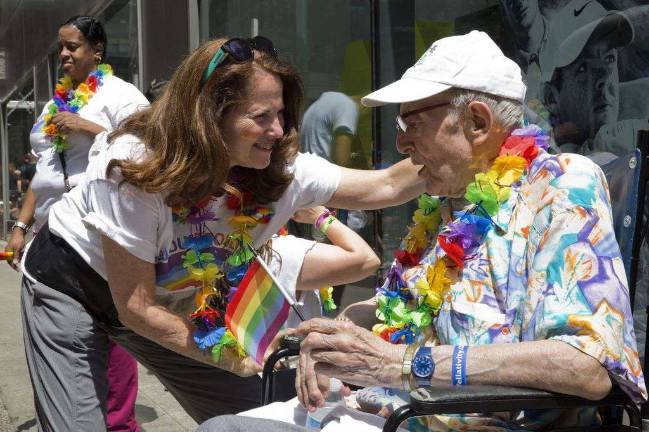Caring For Caregivers

Family caregivers play an essential role in supporting the well-being of older people. Family caregivers, also known as informal caregivers, are the adult relatives and friends who provide essential but unpaid care. In the U.S., family caregivers provide most of the hands-on care, often for years without break, without pay, vacation, recognition, back-up or help. The number of Americans 85 and older — who are at the most risk of frailty — is projected to double between 2000 to 2030, and then double again by 2050. In 2010 the ratio of potential caregivers for each person older than 80 was 7:1; this ratio is expected to decline to 4:1 in 2030 — only 13 years away!
Caregiving includes assistance with the activities of daily living (eating, using a bathroom, bathing) and medical support (medication management, scheduling doctor appointments, accompanying care recipients to medical visits). Equally important, the caregiver provides emotional support and comfort to the care recipient. The economic value of this informal caregiving dramatically surpasses spending for formal home health care and nursing home care in America. For example, the cost of informal dementia caregiving is $56,290 annually per patient.
Being a primary caregiver for someone can be a rewarding experience. If the person being cared for is a close friend or family member, often the bonds of friendship and family are strengthened, and costs and resources are saved. However, being a full-time caregiver can also be difficult, a 24-hour job without a break. In most cases, the caregiver is a friend or family member and therefore does not have formal training in caregiving and often feels ill-prepared to take on certain tasks. This is especially true for those who provide medically-skilled caregiving, such as changing catheter bags, providing wound care, overseeing complex medication management and tube feedings. Spousal caregivers (as compared to an adult child assisting a parent) face greater challenges: they are likely to live with the care recipient, have little choice in taking on a caregiving role and are often more vulnerable because of their older age and associated medical issues. Unfortunately, caregivers state that they often receive inadequate support from health professionals, and frequently feel abandoned and unrecognized by the health care system.
Sometimes, performing caregiver tasks leaves little time for the caregiver to tend to his or her own needs. Over time, this can have negative effects on the caregiver: socially, psychologically and physically. This is known as “caregiver burden.” Risk factors for caregiver burden include: female sex, low educational attainment, residing with the care recipient, depression, social isolation, financial stress, and higher number of hours spent caregiving. In recent years, doctors, social workers, nurses and other family members have become more aware of caregiver burden and ways to address it.
Often, caregiver stress is a difficult topic to bring up, whether you are the caregiver or have a friend or family member in that role. Questions that can be asked of a caregiver to start the conversation include:
How would describe your quality of life?
What do you do for fun?
How often do you get out of the house?
Are there times you feel like you really need help but don't ask for it?
Are there specific tasks, such as getting groceries or paying bills, that you need help with?
Who gives you help when you need it?
When was the last time you saw your doctor?
Does your doctor know about your caregiver role?
If the answers to any of these questions raise concern, there are ways to help. You may be able to help directly, or you can call on other family members, friends, or neighbors. It is also a good idea to tell the caregiver's doctor about your concerns.
Some online resources for caregivers are:
US Centers for Disease Controland Prevention: www.cdc.gov/aging/caregiving/resources.htm
AARP Caregiving Resource Center: www.aarp.org/home-family/caregiving
The Caregiver Action Network: caregiveraction.org
Family Caregiver Alliance: www.caregiver.org
Dr. Ron Adelman is Co-Chief of the Division of Geriatrics and Palliative Medicine at NewYork-Presbyterian Hospital and Weill Cornell Medical Center.